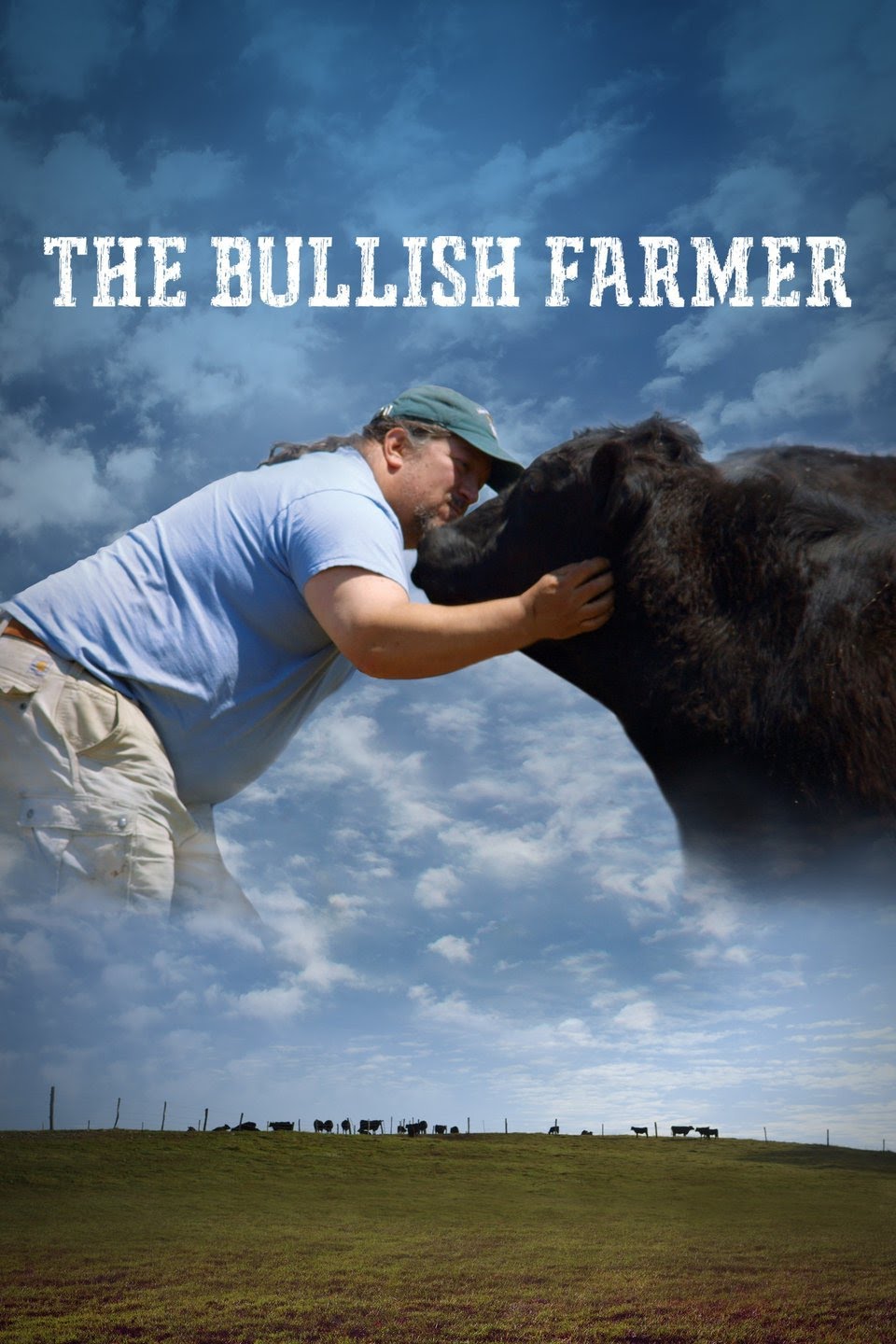Marsolais, Ken (Director). 2017. The Bullish Farmer (Film). Marsolais Productions.
“The Bullish Farmer” is a film about ‘John Boy,’ a farmer in New York State. It focuses on John and his career choices. The audience is told that after finishing school, he worked in Wall Street as a financial investor for 12 years. Facing a crisis of meaninglessness, he decided to return to the farmstead where he had spent his childhood. With a small start in poultry farming, over the last decade he has gradually expanded his activities to a sizeable business – producing and marketing food – uncontaminated by chemicals and genetically modified organisms.
It is a pleasant film to watch, with lovely images of animal flocks and herds and maize fields, and the portrait of John is warm and sympathetic. Nevertheless, the lasting impression is one of predictability and conventionality rather than surprise. This impression is furthered by short textual comments interspersed in the narrative, including quotes of First Nation wisdoms and statements by celebrities such as Jane Goodall, framing the film in a discourse equalizing purity and naturalness.
It is thus a film with a very clear message – that food production should be based on locally developed species of livestock and plants, without herbicides or “unnatural” livestock feeds. The quality of John’s produce is furthermore seen to be enhanced by his highly personalized relation to his animals, expressed in naming, fondling and conversation, including a respectful talk at the sorrowful sending off of animals to slaughter. The latter is the only point of moral difficulty presented by the film. It is justified by John with the argument that the existence of his herds depends on the purpose of meat production.
The film is launched as an anthropological one, but indirectly raises the question as to what this implies. The approach of the film is normative rather than analytical. If the film is “ethnographical” it is in the depiction of John’s individual views of his production strategy and his loving relations to his animals. Yet, there is no attempt to put this in a larger cultural context or contribute a self-reflective perspective of the film’s key message. Rather, the film operates by emotionally including the viewer in an assumedly shared value system. The explicit moral evaluation of John’s production methods provides the red thread and focusses on issues of quality-of-life and human and animal health. Hazardously, the viewer is without problematization introduced to customers who praise the good effects of John’s produce on the health and development of children diagnosed within the autism spectrum. A secondary thread is provided by detailing the risks of monocropping with GMO-seeds and herbicides for long-time field productivity. Nevertheless, such ecological concerns are not dealt with to the same extent as health issues, leaving aside questions of energy use by agricultural machines, vehicles and computers. The impending climate crisis is left in silence. To a non-US reviewer, these biases of the film are social facts that in an anthropological text would have merited a reflective discussion.
The film can be used in methodology courses dealing with fieldwork and research dissemination, as a good base for discussion on issues of identification, reflexivity and outsider/insider issues in analysis and representation.
Gudrun Dahl, b. 1948, is Professor Emeritus of Social Anthropology with particular emphasis on Development Studies at Stockholm University, where she has also been Dean of the Faculty of Social Sciences. Her early research was concerned with social change and livelihood strategies among pastoralists in North East Africa focussing on the Borana of Kenya and the Beja of Sudan. She has also written on Swedish development discourse and on how egalitarianism is expressed in Swedish natural symbolism. Presently she is writing on the use of moral arguments in environmental contexts.
© 2021 Gudrun Dahl

